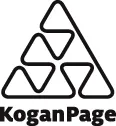
Case Study: Sustainability in the Hotel Industry
The Role of Operating Agreements in the Hotel Industry
Arvind Upadhyay, Francesco Pomponi, Céline Vadam, Sushil Mohan
- English
- ePUB (handyfreundlich)
- Über iOS und Android verfügbar
Case Study: Sustainability in the Hotel Industry
The Role of Operating Agreements in the Hotel Industry
Arvind Upadhyay, Francesco Pomponi, Céline Vadam, Sushil Mohan
Über dieses Buch
This case study is based on a survey conducted among major hotel chains. It looks at how to implement operating agreements and decide on different ways of increasing eco-friendly policies in the hotel industry. It highlights operational problems which arise when there are multiple stakeholders and looks at the challenges of developing coordinated and global sustainability.Implementing sustainability measures in the hospitality industry is not an easy task. Energy consumption accounts for between 3 and 6 per cent of hotel operating costs and is responsible for 60 per cent of its CO2 emissions. This case is for students on hospitality, supply chain, operations management and logistics courses. It analyses factors which influence operating costs, including building characteristics, hotel features, location, and operations. The primary factor is temperature regulation. There are various measures which can be taken within hotels to reduce energy consumption. The authors examine the efficiency of these measures, which rely on the collaboration of all stakeholders. Readers are provided with valuable information on the theory of energy consumption in hotels and the involvement of abundant stakeholders with divergent interest and targets is examined. The case study also looks at how operational and communication are the most effective ways hotel chains can promote sustainability.
Häufig gestellte Fragen
Information
Sustainability in the hotel industry
